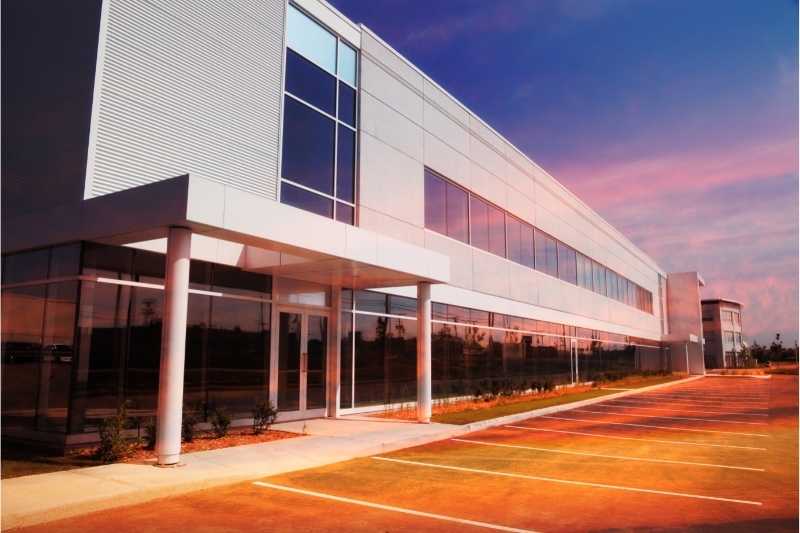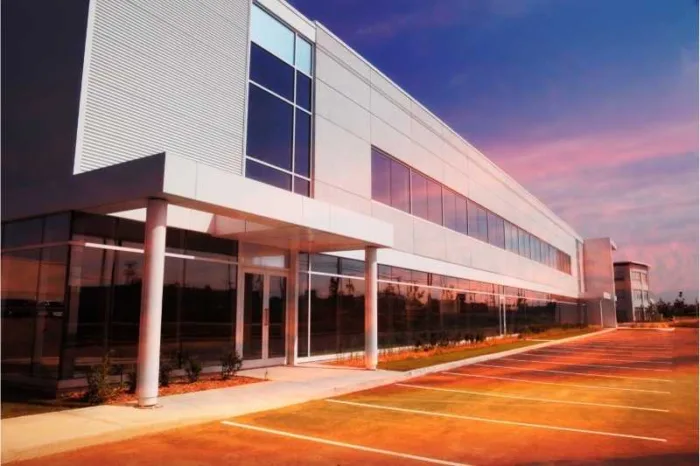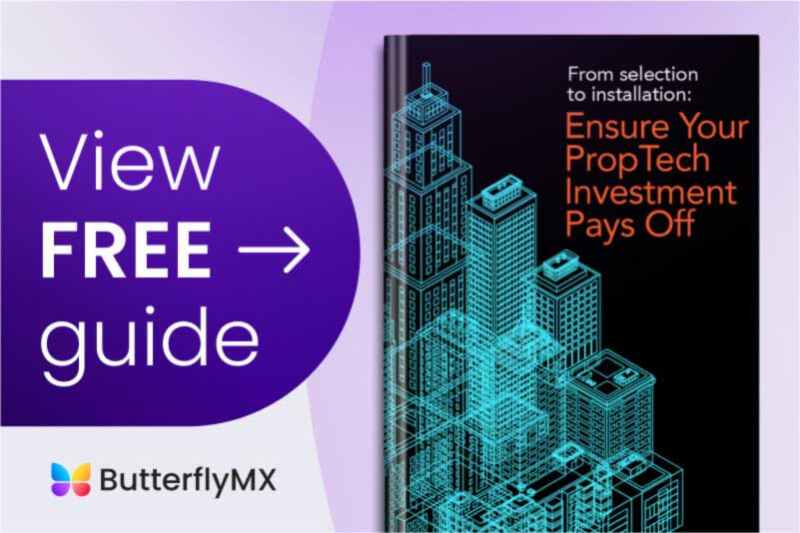
Disclaimer: This content is for informational purposes only, you should not construe any such information as legal, tax, investment, financial, or other advice. Nothing contained on our site constitutes a solicitation, recommendation, endorsement, or offer by ButterflyMX or any third-party service provider. ButterflyMX is not a financial adviser. You should always seek independent legal, financial, taxation, or other advice from a licensed professional.
The key to success in real estate development is to invest your start-up capital wisely. Your commercial real estate financing strategy’s ultimate goal is to maximize your ROI (return on investment).
However, the various financing options available to you come with a number of pros and cons. Everything depends on the type of commercial property that you hope to finance.
In this guide, we cover what’s actually involved with commercial real estate financing. Next, we go over which financing strategies may work for certain commercial properties and explain everything you will need to know about commercial loans. Finally, we explore alternative financing strategies.
This post covers:
- What is commercial real estate financing?
- Commercial real estate loan requirements
- 5 commercial real estate loans to consider
What is commercial real estate financing?
Commercial real estate financing is the method investors use to secure funding to purchase commercial properties. Funding often involves taking out a loan with commercial real estate lenders such as financial institutions, banks, or private lenders. Since 2010, over $91 billion dollars worth of commercial real estate has been built.
Commercial real estate financing differs from multifamily investments in that loans are often made to groups such as corporations, trusts, funds, and developers as opposed to individuals. However, small business owners still play a part in receiving many of these loans (and can benefit from the rest of the information in this post.)
What are the types of commercial real estate leases?
There are five primary types of commercial real estate leases.
They are as follows:
- Ground leases are an agreement where tenants pay rent on a piece of land that they build on. These leases typically last between 20 and 40 years.
- Gross leases require tenants to pay only the agreed-upon rent. Meanwhile, landlords pay all property fees.
- Modified gross leases see tenants and landlords divide costs. So, tenants pay the total rent and a portion of property fees.
- Triple Net leases are the most common type of commercial lease. In a Triple Net lease, tenants are responsible for property expenses, such as maintenance, insurance, and taxes.
- Percentage leases require tenants to pay a base rent and a portion of their gross sales.
Watch how to get started in commercial real estate development:
Commercial real estate loan requirements
Commercial real estate loan requirements vastly differ from what you would expect to pay for a multifamily investment. Different types of loans dictate the amount an investor will put forward as a down payment as well as the interest rate that they’ll pay on the loan.

What credit score is needed for a commercial loan?
A credit score for investors or businesses should be above 660 for both commercial and multifamily loans. Certain loans and alternative financing strategies can serve as workarounds in commercial real estate financing. However, this is uncommon.
What is the interest rate on a commercial loan?
The average interest rate on a commercial loan ranges between 2% and 20%. In addition to commercial real estate loan terms, this range can be explained by the dynamic nature of the real estate cycle.
The current real estate market affects both the housing market and the market for commercial properties. This is why it’s important to stay up to date on the health of the current real estate market.
Keep in mind: Commercial loans typically last between 5 and 20 years, which falls short of the average 30-year mortgage on single-family and multifamily properties. This is another reason why commercial loan rates are high compared to single and multifamily homes.
What is the typical LTV for commercial mortgages?
LTV (the loan-to-value rate) for a commercial mortgage is between 65% and 85% of a property’s value. For example, on a $300,000 property with an LTV of 65%, an investor will put down $195,000.
Do banks do DSCR loans?
Banks and other financial institutions often allow DSCR (debt-service coverage ratio) loans. DSCR loans are approved if a lender determines that a property’s debt won’t outweigh its NOI (net operating income). DSCR loans can be considered a type of hard money loan.

5 commercial real estate loans to consider
When compared to multifamily buildings and single-family homes, you have a lot more loans to choose from when it comes to financing commercial real estate. In addition to purchasing properties, commercial real estate loans can be used for renovating and refinancing properties.
Here are five commercial loans you may want to consider:
- SBA 7(a) loans
- Fixed-interest commercial mortgages
- Commercial Bridge loans
- A business line of credit
- Conduit loans
1. SBA 7(a) loans
The 7(a) loan is a government loan, and the SBA stands for Small Business Administration. For investors, this is a commercial real estate loan with no down payment. However, in lieu of a down payment, investors will need to offer assets or similar collateral.
Given that this loan is serviced by the Small Business Administration, it will typically only benefit small businesses and properties. In theory, these types of commercial properties will benefit the most from not having to pay a down payment. But $5 million is the maximum loan amount.
2. Fixed-interest commercial mortgages
For most commercial properties, a fixed commercial mortgage is the most common type of loan. While it doesn’t involve any creative financing, it may limit real estate risk and challenges.
Aspects of fixed-interest commercial mortgages worth noting are:
- They require a credit score of 700
- They require a business to occupy 51% of the commercial property
- Interest rates range between 3% and 8% depending on the real estate cycle
3. Commercial bridge loans
Commercial bridge loans for real estate may be useful when an investor is in the process of selling another property and hasn’t yet seen a return on that sale. With that in mind, these loans are often very temporary and act as a “bridge” to a different loan when an investor’s finances are more in order. The terms of a bridge loan won’t often last longer than a year or so.
Bridge loans can be considered risky if an investor’s expected cash flow is interrupted and they can’t make their payments in the limited amount of time that this loan gives them. However, they could be an effective commercial financing strategy when used wisely.
Watch how ButterflyMX works:
4. A business line of credit
As opposed to outright purchasing a property, a business line of credit is especially handy for renovations or smaller-scale financing for commercial purposes.
The best analogy for a business line of credit is that it acts like a credit card. This means that there’s a set amount of funding available (say, $50,000). An investor or developer can use as much or as little of that as they want. However, interest rates are high, so many people use this type of financing on a short-term basis.
5. Conduit loans
Investors who have trouble applying for traditional loans often seek conduit loans.
The way conduit loans work is that lenders group loans such as yours together on a secondary market of investors. LTV rates are on the high end (with an average of 75%). Conversely, interest rates are much lower than traditional mortgages. Additionally, conduit loans can be as high as $50 million.
However, borrowers may face a penalty if they pay off their loan before the projected date. This is because an early payoff affects investors on the secondary market who funded the conduit loan.
Takeaways
- Commercial real estate financing involves securing funding from lenders to purchase, renovate, or refinance a commercial property.
- Commercial loans require a credit score of 660, run at an interest rate between 2% and 20%, offer an LTV between 65% and 85%, and can fit under DSCR.
- Five loans you could consider are SBA 7(a) loans, traditional fixed-interest commercial mortgages, bridge loans, a business line of credit, and conduit loans.






